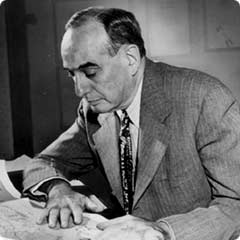 The Basics of Urban Planning
The Basics of Urban PlanningAfter I said I intended to make the world a better place through urban planning, I was asked the best way that urban planning could do that, and whether urban planning could also make the world a worse place. Jane Jacobs was also brought up. My response:
The best way that urban planning makes the world a better place is when it works with policy to make doing the right thing (preserving and promoting neighborhood quality, preserving farmland, preserving habitat, and empowering communities) easy and profitable and doing the wrong thing difficult and expensive. In other words, reversing the polarity.
And yes, traditionally urban planning makes the world a worse place. The history of the profession is a history of arbitrary restrictions established for conflicting political agendas producing distressing side effects. American auto dependence is one example, urban renewal is another. American suburbs are the way they are because of urban planning.
My current thesis is that urban planning makes the world

a worse place when it is controlled by political elites who are corruptible and have incomplete information. When urban planning is controlled by the communities it is intended to serve, it makes the world a better place. Democracy. That's actually not bad, I don't think anyone's written that book yet, though I bet there's plenty of research to back it up.
Jane Jacobs is brilliant. I'm actually more interested in her foil Robert Moses though. Moses was planning to run an expressway through her neighborhood, forcing her to prove why that was a bad idea. Moses made a lot of mistakes, but he did a lot of amazing things also. I'm interested in how to marry Moses's vision and Jacobs's heart. Synthesis.



 a worse place when it is controlled by political elites who are corruptible and have incomplete information. When urban planning is controlled by the communities it is intended to serve, it makes the world a better place. Democracy. That's actually not bad, I don't think anyone's written that book yet, though I bet there's plenty of research to back it up.
a worse place when it is controlled by political elites who are corruptible and have incomplete information. When urban planning is controlled by the communities it is intended to serve, it makes the world a better place. Democracy. That's actually not bad, I don't think anyone's written that book yet, though I bet there's plenty of research to back it up.